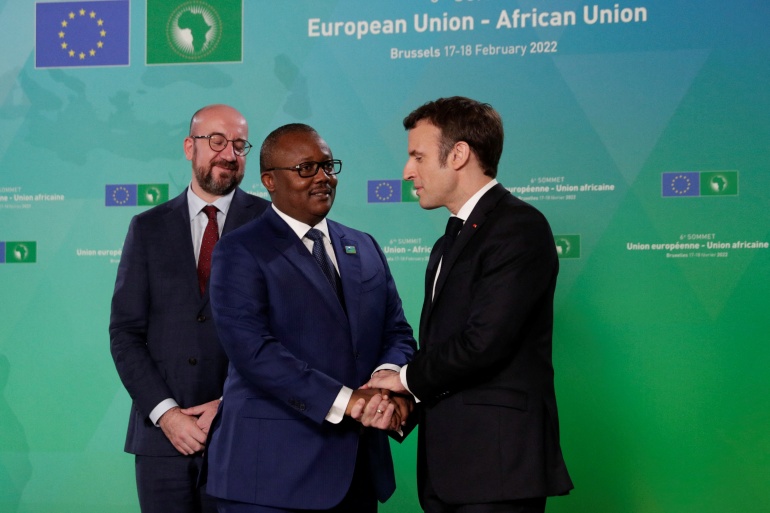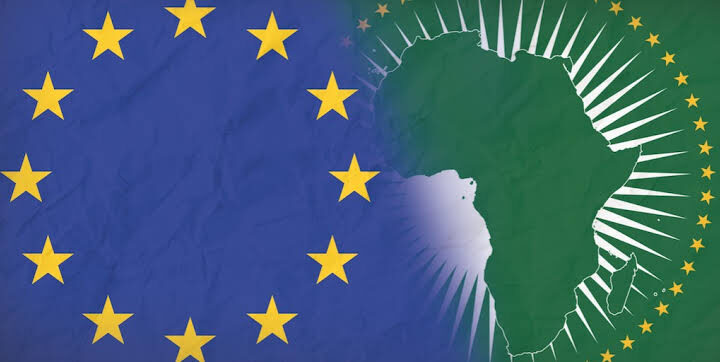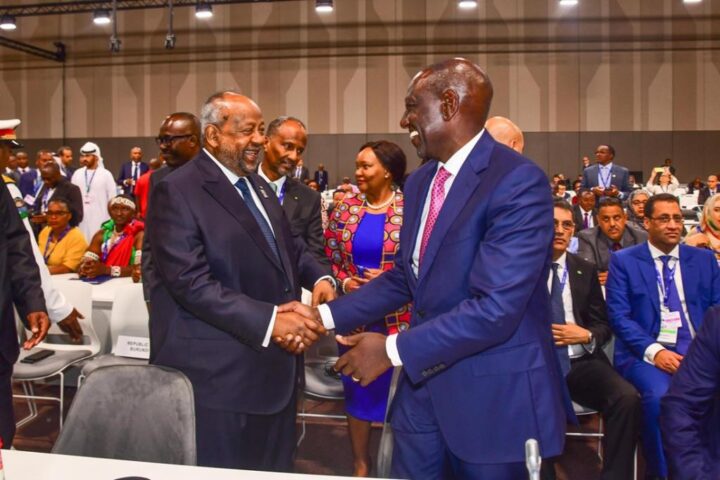The current war in Ukraine is a shameful reminder of the crass terror of the 16th century reign of Czar Ivan IV, the grand prince of Moscow.
It calls to mind the maximum reign of King Leopold of Belgium who, in the 19th century, used the Congo free state as his personal colony. Vladimir Putin of Russia may be mimicking the horror tales of Vladimir Lenin, Benito Mussolini, Joseph Stalin, Adolf Hitler, and Francisco Franco, some of Europe’s 19th century fascist rulers who fed on blood.
The war in Ukraine, however also shows why every nation must strive to strike good bargains in the ensuing new international order where powerful nations are making new statements in ending the unipolar status of the US and its NATO allies.
Join our WhatsApp ChannelThis challenge to a unipolar order has started showing seriously in new modes of relations between world powers and Africa. Africa must become highly strategic in her engagements with the powers, and must rework the policy of neutrality, aid lackey, and non-alliance to that of a strong stakeholder and interested player.
On this pedestal, we view with dismay the furtherance of Africa’s status as aid dependent in the just-concluded AU-EU summit in Brussels.
Russia-Africa summit is also on the cards, with over 50 African country leaders and 3000 delegates walking away from the 2019 Sochi summit with promises of all kinds of aids, which end in resource forays, military missions and enslaving loans.
Nigeria’s loan status with China has exceeded of $4.1 billion as of December 2021, while Africa has a loan status of more than $650 billion, thanks to China’s loan buzz, some of which were taken with airports as collateral.
The just ended 6th African Union-European-Union (AU-EU) summit has called for more alliance between Africa and Europe. Participants agreed a “partnership for solidarity, security, peace and sustainable and sustained economic development and prosperity for the citizens of the two Unions.”
The leaders promised to work closely to reduce global inequalities, strengthen solidarity, promote international cooperation, fight and mitigate climate change and improve delivery on ‘global public goods’.
For all its beauty in promises of support, financial aid and sundry partnerships, the reports on the summit still reflect a persisting paradigm: that Africa is perpetually tied to the apron strings of Europe. The outcome of the summit was still largely a narrative in what Europe will do to (or is it for) Africa.
The agreement, full of sublime goals, may come to ordinary Africans as another spell of fine talk that will do little to help the flurry of coups, economic hardship, insecurity and the ripple effects of a freshly ensuing east-west tension. What about the gale of military coups in Africa, deaths of migrants on the Mediterranean crossing to Europe, growing influence of terrorist gangs, and wide spread famine?
Some African countries like Libya average one death per 38 people seeking to escape Africa to Europe through illegal means. Since 2014, Africa has recorded at least 200 thousand deaths from illegal immigrations to Europe. The story of how Europe treats what is called illegal migration is simply shameful based on how the illegal routes are kept perpetually open, while the legal ones are tightly controlled.
Africa’s over 200 coups since 1950. and all the mishaps and desperate journeys in and out of Africa are down to insurgency, political instability, conflicts and economic hardship. In 2021, Nigeria lost $46.7 million in investment opportunity due to insecurity.
This leads to the questions: what has the AU-EU relations done to help the sorry state of a majority of the countries on the continent? What practical steps have been to taken and seen to stop the wars, hunger and coups? Or is the alliance aggravating the problems?
Someone might ask if it is the purview of Europe to grow food for Africans. Perhaps, it will actually be too simplistic to ask the European Union to prepare the machinery to go to the farms in Africa.
Yet, Europe’s assorted interests and military missions (e.g. Mali, Congo DR, Somalia, Sudan, Ethiopia, Libya, Nigeria) in solely resource-rich regions have lacked explanations in terms of the positive effects. The mineral rich regions are the ones with the highest rate of insecurity, internal wrangling, poverty, coups, ethnic strife, European military presence and UN-backed peace missions. Yet, the EU has provided Africa with more than €2 billion ($2.39 billion) in security assistance since 2004.
We note with surprise how the voices of African leaders from the latest AU-EU summit seemed to be hushed in media reports. The leaders are only portrayed as always presenting a list of demands, plea for financial assistance from Europe with negotiations that sound like buying and selling.
All too often, AU-EU meetings have been embroidered with flowery language, with both continents perennially on an extremely inversely related economic and developmental pedestal. Before the just concluded AU-EU summit, analyst referred to how the US-Russia tensions over Ukraine were going to overshadow the summit, and it did somehow.
It is time for the African Union to rethink the forces driving such summits, including with other continents. We join our voice with development experts who, for decades now, have been calling for a resetting of AU-EU relations. This can start with a more pragmatic approach to addressing hunger, insecurity and political instability in Africa. For now, it seems to many that the military, economic and political agreements between the two continents have been heavily skewed in favour of Europe.
For sure, a lot binds the two continents together beginning with geographical proximity at the North African boarders, large scale trading partnerships, and foreign investment. Europe devotes a lot of money in development aids, investment partnerships and humanitarian assistance. Of the over 447.3 million inhabitants of the EU, more than 23 million (5.1%) and not from any European country.
However, strategy on clearly articulated interests of each party are not usually a part of the summits to this point. To stand on surer grounds for more beneficial summits of interested partners, Africa needs financial self-sufficiency and not simply a list of demands from Europe. On Sunday February 20, 2022, the promise of aid by an American Agency to fund power lines in Nepal sparked large protests. Critics alleged that the promise of a princely $500 million for the power project would undermine Nepal’s sovereignty. Similarly, many have viewed with suspicion the interests of Europe in Africa based on colonial experiences and centuries of economic alliances.
African leaders must design the path to a new renaissance where member States in the AU come together to effectively tackle conflicts on the continent, instead of defining conflicts from the perspectives of European interests and support. Military strategy must not be based entirely on European interests and, as in the case of Nepal, the superpowers need to hear the truth when they hide nefarious interests under the guise of foreign aid. Important caveats thus need to be sounded amidst rising Chinese interest and loans in Africa.
Experts have called on the AU to be clear on its strategic priorities, to define its role in peace and security, especially in terms of policy, political oversight in countries, security architecture and regional economic communities. This is with regard to conflict prevention, resolution and coup deterrence.
Britain’s exit from the EU will afford more opportunities for a renegotiation of some AU-EU pacts, and it is imperative for the AU to redraw its security, political and economic maps before embarking on future summits. By implication, the most significant step in future summits should be to replace the beneficiary-benefactor transactional relationship in the AU-EU parleys with relationships based on shared interests. The AU should internally address the dynamics of diplomacy between individual African countries and individual European countries based on colonial, religious, linguistic and mercantile affiliations. This is often the origin of discontent and disagreements that weaken the security architecture of regional security initiatives. Enough of the aid-recipient strategy of AU engagements with the EU.
















![Gender Activism An Economic Necessity In Africa [PBA Editorial]](https://www.primebusiness.africa/wp-content/uploads/2023/11/vaw-720x480.png)
Follow Us